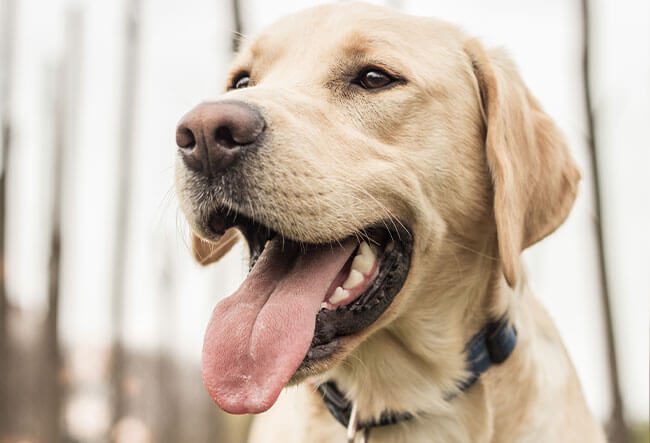How to Get Rid of Your Dog’s Bad Breath in Limerick, PA
If you have a dog, you’ve probably smelled her breath a few times. And even if you love your dog more than anything else in the world, you might not be able to stand her breath for more than a second or two. So, what can you do about it?
Options to Help with Bad Breath
In this article, we’ll walk you through some steps you can take to help get rid of your dog’s bad breath. Take your time looking through this information to see which methods might be best for you, and don’t be afraid to ask your veterinarian for more information as well.

Find the Cause
The first and most important step in the process of eliminating your dog’s bad breath is to find the underlying cause. Bad breath is a symptom in dogs, and it means there’s something else going on. The problem might be as simple as too much plaque buildup on your dog’s teeth, but it could also be as serious as diabetes or organ failure. For this reason, you should always work to identify the cause of the bad breath before continuing.
You can work with your vet to have your dog tested for health problems that may contribute to bad breath. Otherwise, check out the following steps for more ideas.
Try Breath Treats
Breath freshening treats are designed to improve your dog’s breath with just one or two bites. Although they do not address the underlying cause of the bad breath, they can work as a quick fix if you’re completely unable to stand the smell of your dog’s breath.
These treats usually contain peppermint, which is safe for dogs and is a natural breath freshener. They may also be hard and a little bit chewy, which makes them good for cleaning your dog’s teeth through scraping as well.
Provide Toys
Toys can give your dog many ways to chew, which all work together to help reduce plaque buildup on her teeth. The more often your dog chews, especially on hard toys, the more plaque she removes from her teeth during this normal playtime activity. Encourage active chewing by rubbing a little chicken broth on dog toys.
Make sure you give your dog many different textures of toys to chew on. She may prefer one over another, but she will likely shift between each type of texture so that she is getting a good, thorough teeth cleaning when she chews. You might also rotate the toys you give her access to each day to ensure this, too.
Choose High-Quality Food
High-quality dog food can make a world of difference when it comes to the health of your dog, including her teeth. The better the quality of your dog food, the more likely it will be to help clean your dog’s teeth naturally as she chews on it. For this reason, it is always important to give your dog kibble as often as possible. You may supplement her kibble diet with some canned food, but she should eat enough kibble to keep her teeth cleaned and maintained too.
Brush Your Dog’s Teeth
Brushing your dog’s teeth regularly can be a great way to get ahead of her bad breath. By taking the time to brush her teeth, you can cut down on plaque and tartar buildup on your dog’s teeth, freshen her breath, and help her reduce the risk of heart disease all at the same time.
Brushing your dog’s teeth for the first time can be tricky, but with enough patience and effort, you should be able to handle this task. Work slowly, starting by just introducing your dog to the toothbrush or to having her teeth touched before you move on.
Dental Cleanings
Finally, some dogs may need to have professional teeth cleanings performed by the vet. If your dog is a good candidate for this procedure, your vet may recommend it periodically to help cut down on plaque buildup and to make sure your pet stays healthy too.
Some dogs may not be able to undergo professional teeth cleanings, such as those who have heart disease and cannot be anesthetized. Your vet can talk with you more about any potential issues or concerns as well.
Your Vet Can Help with Bad Dog Breath
When you work through these steps, you’ll be able to provide your dog with the proper care and maintenance to help her breath smell better in no time. Remember that not all these steps will work for every dog, and some may need more assistance than others.
Your vet can give you more information about your dog’s specific, individual needs. By checking your dog closely in person, the vet can determine any potential concerns about her breath and can give you recommendations based on your dog’s situation, too. Be sure to ask the vet if you have any questions or concerns. To book an appointment at Limerick Veterinary Hospital call (610) 489-2848 or use the online form!
